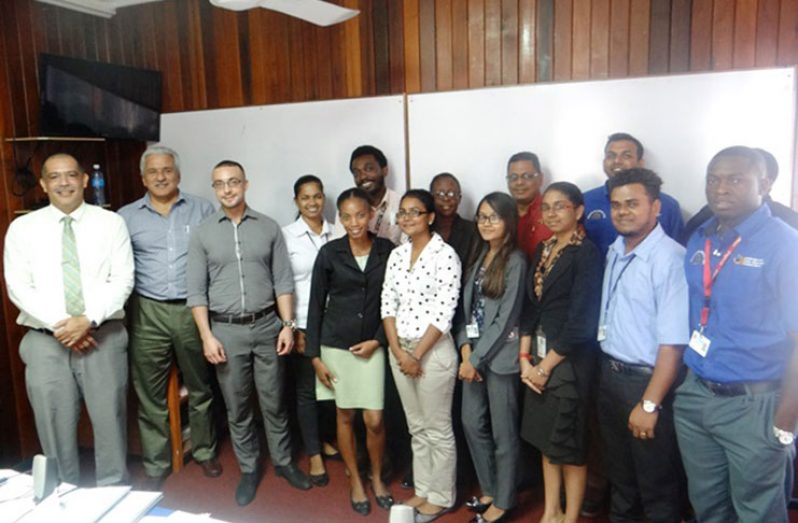PROFESSIONALS and technicians of the Pesticides and Toxic Chemical Control Board (PTCCB) and the National Agriculture Research and Extension Institute (NAREI) recently benefitted from a training programme to build their capacity to implement national standards for the use of commercial bio-inputs in lieu of chemicals in agriculture here.
Bio-inputs are biological inoculants and bio-pesticides which ensure safe food production, nutrition security and the environmental sustainability of farming activities in agricultural communities.
Guyana was the only Caribbean country to benefit from the Inter-American Agency for Cooperation on Agriculture (IICA) project titled: “Development of the Institutional Frameworks of the Subsector of Commercial Bio-pesticides for Agricultural use to promote cleaner agriculture.”
The training was the culminating event in a one-year project for Guyana, the Dominican Republic and Paraguay by the IICA on bio-inputs as an important component of sustainable agriculture. The project was funded and implemented by the IICA under its Competitive Fund for Technical Cooperation.
The two main outputs of the project were: (1) a proposal of a ational standard for the evaluation, registration and post-registration control of commercial bio-inputs for agricultural use; and (2) a proposal of a technical manual of procedures for the evaluation, registration and control of commercial bio-inputs for agricultural use of biological pesticides in Guyana.
The standard and the technical manual were introduced to staffers of the PTCCB and NAREI during the training programme held in the boardroom of the local IICA office.
The presenters were IICA specialists Mr. Pedro Cussianovich and Mr. Mario Van Stahlen who had collaborated closely with NAREI and the PTCCB in drafting the standard and manual for their use as templates for evaluation, registration and post-registration of the use of bio-pesticides in Guyana.
Mr. Cussianovich said that the two documents contain proposals that the two organisations can use as templates or they could modify them in developing their own standards for management of bio-inputs which are to be increasingly used in Guyana in lieu of chemicals.
The provisions established in the standard referred specifically to the regulation and strengthening of activities carried out during registration of commercially-produced bio-inputs and after the registration had been granted.
The standard also establishes the requirements and procedures for management of activities associated with all stages of the product life cycle. This is aimed at properly regulating the use, management and sale of products, by managing their potential risks for human and animal health, and for the environment and agro-ecosystems to bring about cleaner and more sustainable agriculture in the country.












